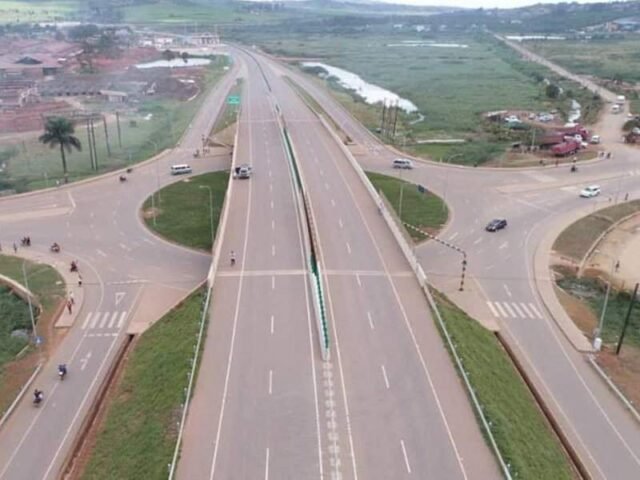Following the success of the Entebbe Express Highway, the government has indicated that it will introduce more road toll fees on new roads constricted in Uganda that will be completed soon. According to the government, this will help to construct more road infrastructures without the fear of incurring debts.
The 2024 Ministry of Finance Sustainability Report indicates that Uganda has a financing gap of close to Shs 1.4 billion shillings. The Executive Director of Uganda National Roads Authority (UNRA) Ms. Allen Kagina while speaking at the AB & David Round Table discussion said that public-private partnerships are the way to go for the East African country in building roads of incurring public debt to be avoided.
Ms. Allen Kagina also said the government conducted a toll fee survey in the 2012/13 financial year on the Entebbe Express Highway. This was found very viable. She also said that the government’s estimate was Shs. 2b monthly revenue from this venture. However, they managed to collect Shs. 3b monthly and this continues to grow.
“We found that tolling was a viable project and when we opened the Entebbe Expressway in January 2022, traffic outstripped our projections. We projected 13,000 vehicles per day but on [some days we have had] 16,000 vehicles,” she said.
Noting that the government is expected to install toll gates on the Kampala-Jinja Expressway, which even though has delayed, compensations had started covering Munyonyo to Namataba, while the one which covers Namataba to Jinja, will come later.
“We are buying land in phases, we have encountered some hiccups in Kasokoso but we have been discussing with leaders, and by the time we get a developer we will have got enough land to start,” she added.
Meanwhile, UNRA has also revealed how there are plans to construct another outer belt road for Kampala. This is to help reduce the traffic in the city due to the constant vehicle hold-ups on the Northern Bypass. This will help in decongesting the city.
The Ministry of Finance Public Private Partnership Unit Executive Director, Mr. Jim Mugunga said that private partnerships are a vital source of revenue. And at the same time, they decrease the government’s burden of incurring debts to construct development projects.
“If the Kampala-Jinja Expressway is constructed in the next two years, the contractor will not be paid immediately but will be allowed to collect toll fees spread over a period, which saves the country the cost of about $1b in one batch,” he said, noting that public-private partnerships have attracted interest with at least eight bidders seeking to implement the Kampala-Jinja Expressway project.
Apparently, the construction of roads remains the lone most expensive investment in Uganda. About Shs 1.4 billion is needed by Uganda to fund the road infrastructure gap according to the Ministry of Finance Debt Sustainability Report.
About 30 public private partnerships worth Shs 9.1 billion shillings have been finalized with the UMEME power distribution concession being the major one. The others include Kampala Serena Hotel, Bujagali hydro power project and Eskom power generation among others.
ALSO READ: Police Brutally Beats MUBS Student to Near Death During Protests
“Public-private partnerships can ease fiscal constraints of infrastructure investment if challenges like the development of institutional capacity are addressed,” she said.
Daniel Lubogo the AB & David managing partner highlighted how nations such as Ghana have worked on large public partnership projects. They include a road linking Ghana to Ivory Coast, Zambia and DR Congo.








